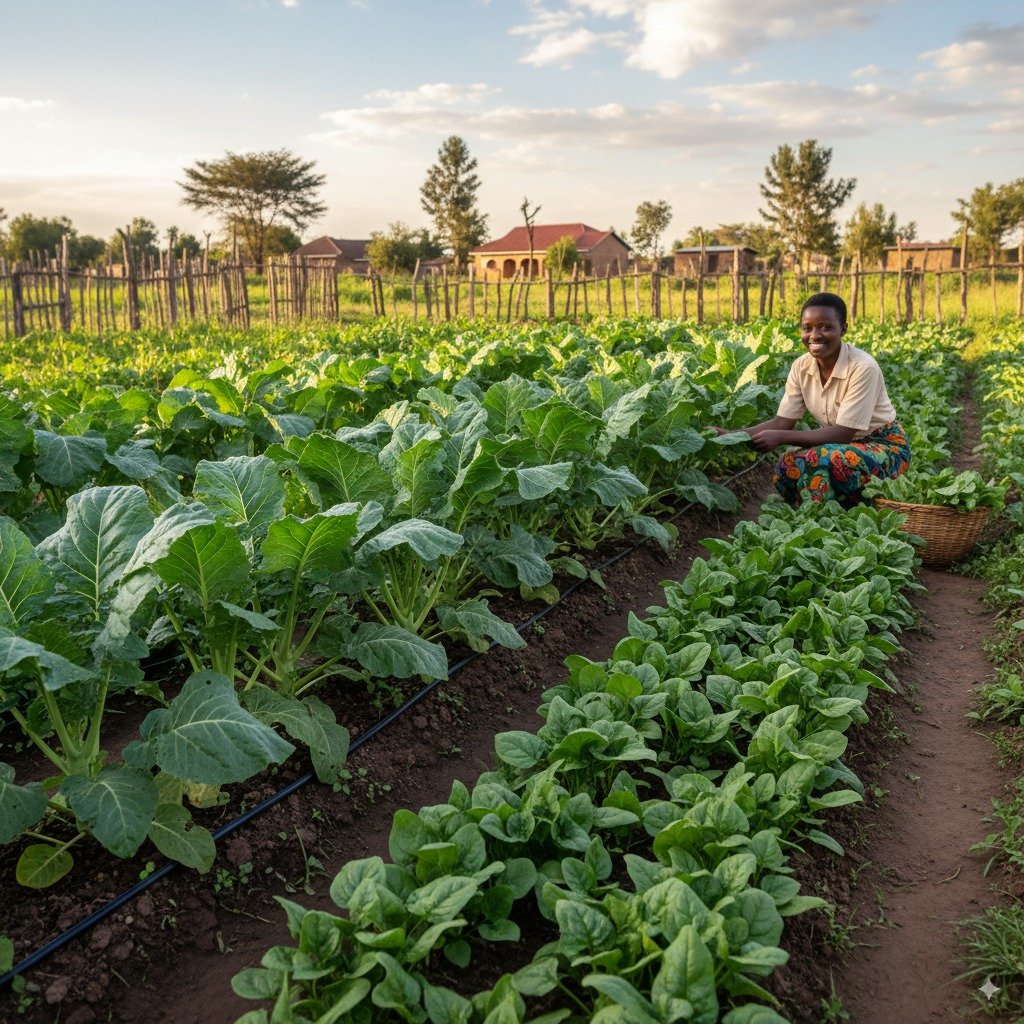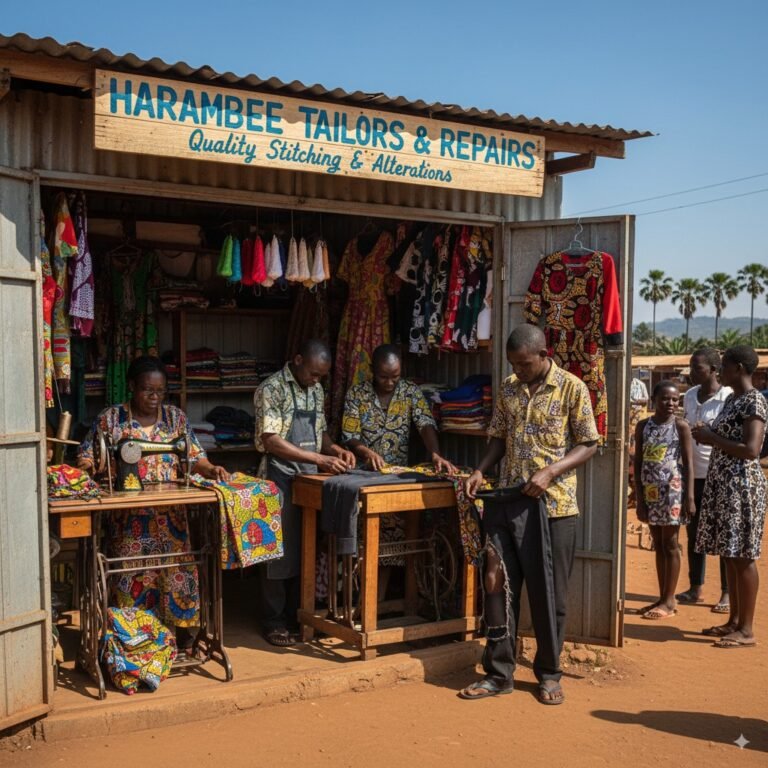How to Start a Sukuma and Spinach Kitchen Garden Business in Kenya
Introduction
The sukuma and spinach kitchen garden business in Kenya is one of the most affordable and reliable agribusiness hustles. Sukuma wiki (kale) and spinach are among the most consumed vegetables in Kenyan households, served daily with ugali, rice, or githeri. Demand is consistent all year, making this a dependable source of income for small-scale farmers and urban gardeners. With a small plot, sacks, or even containers, you can start growing sukuma and spinach for home use or for sale in your neighborhood.
Startup Costs 💰
This business requires very little capital compared to other farming ventures.
- Capital Needed: KES 3,000 – 8,000
- Key Expenses:
- Seeds (sukuma and spinach varieties) — KES 500 – 1,000
- Manure or fertilizer — KES 1,000 – 2,000
- Watering cans, pipes, or drip system — KES 1,000 – 2,000
- Sacks, containers, or garden tools — KES 500 – 2,000
- Pesticides/organic sprays — KES 500 – 1,000
💡 Tip: If land is limited, use sack or vertical gardens to maximize space.
Why This Business Works ✅
- High Demand: Sukuma and spinach are staple vegetables.
- Quick Growth: Ready for harvest in 1–2 months.
- Low Capital: Start with just a few thousand shillings.
- Repeat Harvests: Vegetables regrow after picking.
- Flexible Setup: Can be done in rural plots, peri-urban land, or urban balconies.
Step-by-Step Setup 🛠️
1. Prepare the Land or Containers
- Clear weeds and loosen soil.
- Mix with compost or manure.
- For sack gardens, fill with soil and plant seedlings in holes along the sides.
2. Plant Seeds or Seedlings
- Buy certified sukuma and spinach seeds from agrovets.
- Raise seedlings in a nursery, then transplant after 3–4 weeks.
3. Water Regularly
- Sukuma and spinach need constant moisture.
- Use drip irrigation, watering cans, or recycled water for efficiency.
4. Weed and Fertilize
- Keep gardens weed-free.
- Apply manure or fertilizers like DAP and CAN.
5. Harvest and Sell
- Harvest leaves weekly after plants mature.
- Sell to mama mboga, households, or local markets.
Profit Breakdown 📊
Example:
- 1 sack produces 15–20 sukuma bunches.
- Sell each bunch at KES 10 – 20.
- Income per sack per harvest = ~KES 300.
- With 30 sacks = KES 9,000 per cycle.
On a 1/8-acre farm:
- Harvest 500+ sukuma bunches per week.
- Sell at KES 15 each = KES 7,500 weekly.
- Monthly = KES 30,000 – 40,000.
Challenges & How to Overcome Them ⚠️
- Pests and Diseases: Aphids and leaf spots attack sukuma.
- Solution: Use organic pesticides like neem or buy safe sprays.
- Water Shortages: Dry seasons affect growth.
- Solution: Use sack/vertical gardens to save water and recycle greywater.
- Market Saturation: Too many farmers in some areas.
- Solution: Secure buyers early (mama mboga, schools, restaurants).
- Short Shelf Life: Vegetables wilt quickly.
- Solution: Harvest in the morning and deliver fresh.
Tips to Grow 🚀
- Sell directly to schools, hotels, and supermarkets.
- Dry spinach for packaging as a longer-lasting product.
- Combine with other vegetables like managu or terere for variety.
- Start small, then scale into a full vegetable farm.
- Brand your farm as “Fresh Greens Kenya” for recognition.
Frequently Asked Questions (FAQ) ❓
Q: How much capital do I need to start a sukuma and spinach garden?
A: With as little as KES 3,000 – 8,000, you can set up a small sack or backyard garden.
Q: How profitable is sukuma farming?
A: A small 1/8-acre farm can bring KES 30,000 – 40,000 monthly, depending on demand.
Q: How long before sukuma and spinach are ready to harvest?
A: 1–2 months, with repeat harvests weekly.
Q: Can I grow sukuma and spinach in town?
A: Yes, sack or container gardens make it possible in urban areas.
Conclusion
The sukuma and spinach kitchen garden business in Kenya is one of the easiest and most reliable hustles. With KES 3,000 – 8,000, you can grow vegetables in sacks, plots, or containers and earn steady weekly income. With proper watering, pest control, and market planning, you can build a profitable and sustainable vegetable business.
👉 Explore more hustler-friendly opportunities in the Business Ideas Hub — with over 50+ small businesses you can start today.







